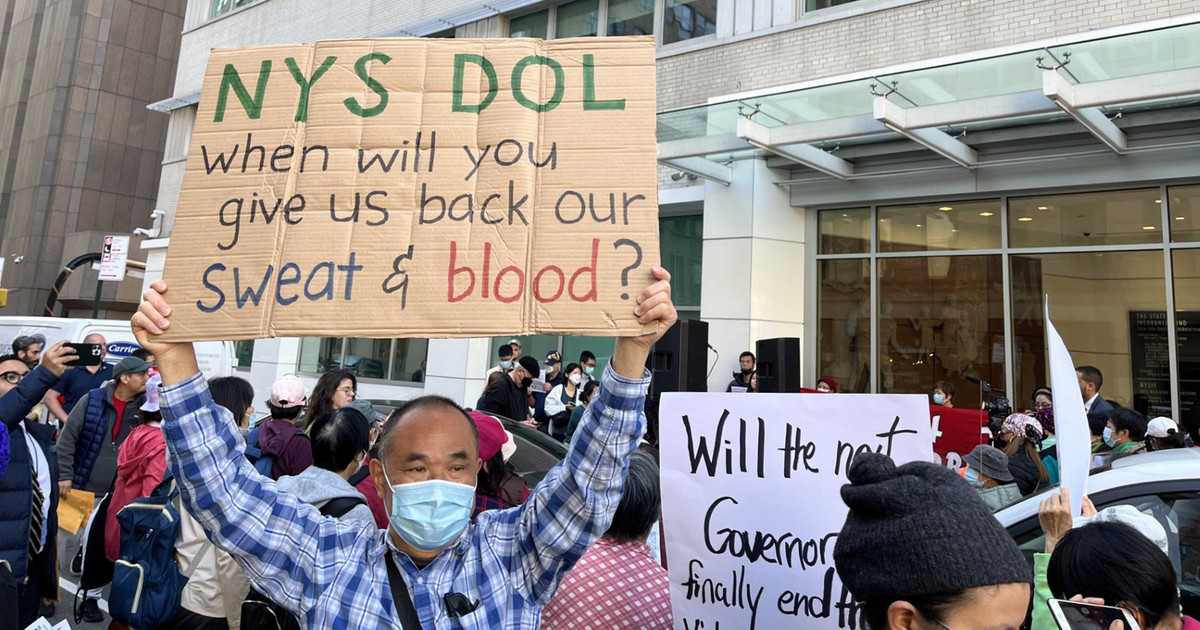“Each year, more than $1 billion is stolen from the pockets of hardworking New Yorkers by unscrupulous employers, often targeting the workers with the fewest resources to fight back,” Rosenthal said. “If businesses refuse to do the right thing and pay their workers what they are owed, New York State should hold them to account.”
The first, S8451, would empower the New York State Liquor Authority to suspend liquor licenses for bars and restaurants that the Department of Labor has determined owe more than $1,000 in back wages to their workers. According to Documented and ProPublica’s analysis, more than $52 million has been stolen from people working in restaurants in New York, more than in any other industry. The amount of back wages accounted for more than 25% of all reported wage theft in the state. Similar measures have been successful in other parts of the country, including Santa Clara County in California, which has recovered $110,000 for workers since 2019.
The second bill, S8452, would enable the Department of Labor to place a stop-work order on any business that has a wage theft claim of at least $1,000. This approach has proven successful in other states, such as New Jersey, which temporarily shut down 27 Boston Market restaurants and eventually recovered more than $630,000 in back wages for 314 workers. Boston Market did not respond to a request for comment.
The third bill, S8453, allows the New York State Department of Taxation and Finance to suspend a business’s certificate of authority — which allows it to collect sales tax and conduct business — in cases where wage theft exceeds $1,000.



Yea, “making all the other workers unemployed” as a response isn’t really equitable. Make it economically unfeasible but “I fucked up your time card, here’s $100” is better than “I fucked up your time card, get a new job.”
Companies that thrive off the practice get wrecked, mistakes still have substantial payouts to ensure compliance.